- Home
- Daniel Defoe
A Journal of the Plague Year Page 16
A Journal of the Plague Year Read online
Page 16
Here I saw a poor Man walking on the Bank, or Sea-wall, as they call it, by himself. I walked a while also about, seeing the Houses all shut up; at last I fell into some Talk, at a Distance, with this poor Man; first I asked him, how People did thereabouts? Alas, Sir! says he, almost all desolate; all dead or sick: Here are very few Families in this Part, or in that Village, pointing at Poplar, where half of them are not dead already, and the rest sick. Then he pointed to one House, There they are all dead, said he, and the House stands open; no Body dares go into it. A poor Thief, says he, ventured in to steal something, but he paid dear for his Theft; for he was carried to the Church Yard too, last Night. Then he pointed to several other Houses. There, says he, they are all dead; the Man and his Wife, and five Children. There, says he, they are shut up, you see a Watchman at the Door; and so of other Houses. Why, says I, What do you here all alone? Why, says he, I am a poor desolate Man; it has pleased God I am not yet visited, tho’ my Family is, and one of my Children dead. How do you mean then, said I, that you are not visited. Why, says he, that’s my House, pointing to a very little low boarded House, and there my poor Wife and two Children live, said he, if they may be said to live; for my Wife and one of the Children are visited, but I do not come at them. And with that Word I saw the Tears run very plentifully down his Face; and so they did down mine too, I assure you.
But said I, Why do you not come at them? How can you abandon your own Flesh, and Blood? Oh, Sir! says he, the Lord forbid; I do not abandon them; I work for them as much as I am able; and blessed be the Lord, I keep them from Want; and with that I observ’d, he lifted up his Eyes to Heaven, with a Countenance that presently told me, I had happened on a Man that was no Hypocrite, but a serious, religious good Man, and his Ejaculation was an Expression of Thankfulness, that in such a Condition as he was in, he should be able to say his Family did not want. Well, says I, honest Man, that is a great Mercy as things go now with the Poor: But how do you live then, and how are you kept from the dreadful Calamity that is now upon us all? Why Sir, says he, I am a Waterman, and there’s my Boat, says he, and the Boat serves me for a House; I work in it in the Day, and I sleep in it in the Night; and what I get, I lay down upon that Stone, says he, shewing me a broad Stone on the other Side of the Street, a good way from his House, and then, says he, I halloo, and call to them till I make them hear; and they come and fetch it.
Well Friend, says I, but how can you get any Money as a Waterman? does any Body go by Water these Times? Yes Sir, says he, in the Way I am employ’d there does. Do you see there, says he, five Ships lie at Anchor, pointing down the River, a good way below the Town, and do you see, says he, eight or ten Ships lie at the Chain, there, and at Anchor yonder, pointing above the Town. All those Ships have Families on board, of their Merchants and Owners, and such like, who have lock’d themselves up, and live on board, close shut in, for fear of the Infection; and I tend on them to fetch Things for them, carry Letters, and do what is absolutely necessary, that they may not be obliged to come on Shore; and every Night I fasten my Boat on board one of the Ship’s Boats, and there I sleep by my self, and blessed be God, I am preserv’d hitherto.
Well, said I, Friend, but will they let you come on board, after you have been on Shore here, when this is such a terrible Place, and so infected as it is?
Why, as to that, said he, I very seldom go up the Ship Side, but deliver what I bring to their Boat, or lie by the Side, and they hoist it on board; if I did, I think they are in no Danger from me, for I never go into any House on Shore, or touch any Body, no, not of my own Family; But I fetch Provisions for them.
Nay, says I, but that may be worse, for you must have those Provisions of some Body or other; and since all this Part of the Town is so infected, it is dangerous so much as to speak with any Body; for this Village, said I, is as it were, the Beginning of London, tho’ it be at some Distance from it.
That is true, added he, but you do not understand me Right, I do not buy Provisions for them here; I row up to Greenwich and buy fresh Meat there, and sometimes I row down the River to Woolwich and buy there; then I go to single Farm Houses on the Kentish Side, where I am known, and buy Fowls and Eggs, and Butter, and bring to the Ships, as they direct me, sometimes one, sometimes the other; I seldom come on Shore here; and I came now only to call to my Wife, and hear how my little Family do, and give them a little Money, which I received last Night.
Poor Man! said I, and how much hast thou gotten for them?
I have gotten four Shillings, said he, which is a great Sum, as things go now with poor Men; but they have given me a Bag of Bread too, and a Salt Fish and some Flesh; so all helps out.
Well, said I, and have you given it them yet?
No, said he, but I have called, and my Wife has answered, that she cannot come out yet, but in Half an Hour she hopes to come, and I am waiting for her: Poor Woman! says he, she is brought sadly down; she has a Swelling, and it is broke, and I hope she will recover; but I fear the Child will die; but it is the Lord!——Here he stopt, and wept very much.
Well, honest Friend, said I, thou hast a sure Comforter, if thou hast brought thy self to be resign’d to the will of God, he is dealing with us all in Judgment.
Oh, Sir, says he, it is infinite Mercy, if any of us are spar’d; and who am I to repine!
Sayest thou so, said I, and how much less is my Faith than thine? And here my Heart smote me, suggesting how much better this Poor Man’s Foundation was, on which he staid in the Danger, than mine; that he had no where to fly; that he had a Family to bind him to Attendance, which I had not; and mine was meer Presumption, his a true Dependance, and a Courage resting on God: and yet, that he used all possible Caution for his Safety.
I turn’d a little way from the Man, while these Thoughts engaged me, for indeed, I could no more refrain from Tears than he.
At length, after some farther Talk, the poor Woman opened the Door, and call’d, Robert, Robert; he answered and bid her stay a few Moments, and he would come; so he ran down the common Stairs to his Boat, and fetch’d up a Sack in which was the Provisions he had brought from the Ships; and when he returned, he hallooed again; then he went to the great Stone which he shewed me, and emptied the Sack, and laid all out, every Thing by themselves, and then retired; and his Wife came with a little Boy to fetch them away; and he call’d, and said, such a Captain had sent such a Thing, and such a Captain such a Thing, and at the End adds, God has sent it all, give Thanks to him. When the Poor Woman had taken up all, she was so weak, she could not carry it at once in, tho’ the Weight was not much neither; so she left the Biscuit which was in a little Bag, and left a little Boy to watch it till she came again.
Well, but says I to him, did you leave her the four Shillings too, which you said was your Week’s Pay?
YES, YES, says he, you shall hear her own it. So he calls again, Rachel, Rachel, which it seems was her Name, did you take up the Money? YES, said she. How much was it, said he? Four Shillings and a Groat, said she. Well, well, says he, the Lord keep you all; and so he turned to go away.
As I could not refrain contributing Tears to this Man’s Story, so neither could I refrain my Charity for his Assistance; so I call’d him, Hark thee Friend, said I, come hither; for I believe thou art in Health, that I may venture thee; so I pull’d out my Hand, which was in my Pocket before, here, says I, go and call thy Rachel once more, and give her a little more Comfort from me. God will never forsake a Family that trust in him as thou dost; so I gave him four other Shillings, and bad him go lay them on the Stone and call his Wife.
I have not Words to express the poor Man’s thankfulness, neither could he express it himself; but by Tears running down his Face; he call’d his Wife, and told her God had mov’d the Heart of a Stranger upon hearing their Condition, to give them all that Money; and a great deal more such as that, he said to her. The Woman too, made Signs of the like Thankfulness, as well to Heaven, as to me, and joyfully pick’d it up; and I parted with no Money all that Year
, that I thought better bestow’d.
I then ask’d the poor Man if the Distemper had not reach’d to Greenwich: He said it had not, till about a Fortnight before; but that then he feared it had; but that it was only at that End of the Town, which lay South towards Deptford-Bridge; that he went only to a Butchers-Shop, and a Grocers, where he generally bought such Things as they sent him for; but was very careful.
I ask’d him then, how it came to pass, that those People who had so shut themselves up in the Ships, had not laid in sufficient Stores of all things necessary? He said some of them had, but on the other Hand, some did not come on board till they were frighted into it, and till it was too dangerous for them to go to the proper People, to lay in Quantities of Things, and that he waited on two Ships which he shewed me, that had lay’d in little or nothing but Biscuit Bread, and Ship Beer; and that he had bought every Thing else almost for them. I ask’d him, if there was any more Ships that had separated themselves, as those had done. He told me yes, all the way up from the Point, right against Greenwich, to within the Shore of Lime-house and Redriff, all the Ships that could have Room, rid two and two in the middle of the Stream; and that some of them had several Families on Board. I ask’d him, if the Distemper had not reached them? He said he believ’d it had not, except two or three Ships, whose People had not been so watchful, to keep the Seamen from going on Shore as others had been; and he said it was a very fine Sight to see how the Ships lay up the Pool.
When he said he was going over to Greenwich, as soon as the Tide began to come in, I ask’d if he would let me go with him, and bring me back, for that I had a great mind to see how the Ships were ranged as he had told me? He told me if I would assure him on the Word of a Christian, and of an honest Man, that I had not the Distemper, he would: I assur’d him, that I had not, that it had pleased God to preserve me, That I liv’d in White-Chapel, but was too Impatient of being so long within Doors, and that I had ventured out so far for the Refreshment of a little Air; but that none in my House had so much as been touch’t with it.
Well, Sir, says he, as your Charity has been mov’d to pity me and my poor Family; sure you cannot have so little pity left, as to put your self into my Boat if you were not Sound in Health, which would be nothing less than killing me, and ruining my whole Family. The poor Man troubled me so much, when he spoke of his Family with such a sensible Concern, and in such an affectionate Manner, that I cou’d not satisfy my self at first to go at all. I told him, I would lay aside my Curiosity, rather than make him uneasy; tho’ I was sure, and very thankful for it, that I had no more Distemper upon me, than the freshest Man in the World: Well, he would not have me put it off neither, but to let me see how confident he was, that I was just to him, he now importuned me to go; so when the Tide came up to his Boat, I went in, and he carry’d me to Greenwich: While he bought the Things which he had in his Charge to buy, I walk’d up to the Top of the Hill, under which the Town stands, and on the East-Side of the Town, to get a Prospect of the River: But it was a surprising Sight to see the Number of Ships which lay in Rows, two and two, and some Places, two or three such Lines in the Breadth of the River, and this not only up quite to the Town, between the Houses which we call Ratclif and Redriff, which they name the Pool, but even down the whole River, as far as the Head of Long-Reach, which is as far as the Hills give us Leave to see it.
I cannot guess at the Number of Ships, but I think there must be several Hundreds of Sail; and I could not but applaud the Contrivance, for ten thousand People, and more, who attended Ship Affairs, were certainly sheltered here* from the Violence of the Contagion, and liv’d very safe and very easy.
I returned to my own Dwelling very well satisfied with my Days Journey, and particularly with the poor Man; also I rejoyced to see that such little Sanctuaries were provided for so many Families, in a Time of such Desolation. I observ’d also, that as the Violence of the Plague had encreased, so the Ships which had Families on Board, remov’d and went farther off, till, as I was told, some went quite away to Sea, and put into such Harbours, and safe Roads on the North Coast, as they could best come at.
But it was also true, that all the People, who thus left the Land, and liv’d on Board the Ships, were not entirely safe from the Infection, for many died, and were thrown over board into the River, some in Coffins, and some, as I heard, without Coffins, whose Bodies were seen sometimes to drive up and down, with the Tide in the River.
But I believe, I may venture to say, that in those Ships which were thus infected, it either happened where the People had recourse to them too late, and did not fly to the Ship till they had stayed too long on Shore, and had the Distemper upon them, tho’ perhaps, they might not perceive it, and so the Distemper did not come to them, on Board the Ships, but they really carried it with them; OR it was in these Ships, where the poor Waterman said they had not had Time to furnish themselves with Provisions, but were obliged to send often on Shore to buy what they had Occasion for, or suffered Boats to come to them from the Shore; and so the Distemper was brought insensibly among them.
And here I cannot but take notice that the strange Temper of the People of London at that Time contributed extremely to their own Destruction. The Plague began, as I have observed, at the other End of the Town, namely, in Long-Acre, Drury-Lane, &c. and came on towards the City very gradually and slowly. It was felt at first in December, then again in February, then again in April, and always but a very little at a Time; then it stopt till May, and even the last Week in May, there was but 17, and all at that End of the Town; and all this while, even so long, as till there died above 3000 a-Week; yet had the People in Redriff, and in Wapping, and Ratcliff on both Sides the River, and almost all Southwark-Side, a mighty Fancy, that they should not be visited, or at least, that it would not be so violent among them. Some People fancied, the smell of the Pitch and Tar, and such other things, as Oil and Rosin, and Brimstone, which is so much used by all Trades relating to Shipping, would preserve them. Others argued it, because it was in its extreamest Violence in Westminster, and the Parishes of St. Giles’s and St. Andrew’s, &c. and began to abate again, before it came among them, which was true indeed, in Part: For Example.
N.B. That it was observ’d the Numbers mention’d in Stepney Parish, at that time, were generally all on that Side where Stepney Parish joined to Shoreditch, which we now call Spittle-fields, where the Parish of Stepney, comes up to the very Wall of Shoreditch Church-Yard, and the Plague at this Time was abated at St. Giles’s in the Fields, and raged most violently in Cripplegate, Bishopsgate and Shoreditch Parishes, but there was not 10 People a-Week that died of it in all that Part of Stepney Parish, which takes in Lime-House, Ratcliff-high-way, and which are now the Parishes of Shadwell and Wapping, even to St. Katherines by the Tower, till after the whole Month of August was expired; but they paid for it afterwards, as I shall observe by and by.
This, I say, made the People of Redriff and Wapping, Ratcliff and Lime-House so secure, and flatter themselves so much with the Plague’s going off, without reaching them, that they took no Care, either to fly into the Country, or shut themselves up; nay, so far were they from stirring, that they rather receiv’d their Friends and Relations from the City into their Houses; and several from other Places really took Sanctuary in that Part of the Town, as a Place of Safety, and as a Place which they thought God would pass over and not visit as the rest was visited.
And this was the Reason, that when it came upon them they were more surprized, more unprovided and more at a Loss what to do than they were in other Places, for when it came among them really, and with Violence, as it did indeed, in September and October, there was then no stirring out into the Country, no Body would suffer a Stranger to come near them, no nor near the Towns where they dwelt; and as I have been told, several that wandred into the Country on Surry Side were found starv’d to Death in the Woods and Commons, that Country being more open and more woody, than any other Part so near London; especially about Norwood, and the P
arishes of Camberwell, Dullege, and Lusum, where it seems no Body durst relieve the poor distress’d People for fear of the Infection.
This Notion having, as I said, prevailed with the People in that Part of the Town, was in Part the Occasion, as I said before, that they had Recourse to Ships for their Retreat; and where they did this early, and with Prudence, furnishing themselves so with Provisions, that they had no need to go on Shore for Supplies, or suffer Boats to come on Board to bring them; I say where they did so they had certainly the safest Retreat of any People whatsoever: But the Distress was such, that People ran on Board in their Fright without Bread to eat, and some into Ships, that had no Men on Board to remove them farther off, or to take the Boat and go down the River to buy Provisions where it might be done safely; and these often suffered, and were infected on board as much as on Shore.
As the richer Sort got into Ships, so the lower Rank got into Hoys, Smacks, Lighters, and Fishing-boats; and many, especially Watermen, lay in their Boats; but those made sad Work of it, especially the latter, for going about for Provision, and perhaps to get their Subsistence, the Infection got in among them and made a fearful Havock; many of the Watermen died alone in their Wherries, as they rid at their Roads, as well above-Bridge as below, and were not found sometimes till they were not in Condition for any Body to touch or come near them.
Indeed the Distress of the People at this Sea-faring End of the Town was very deplorable, and deserved the greatest Commiseration: But alas! this was a Time when every one’s private Safety lay so near them, that they had no Room to pity the Distresses of others; for every one had Death, as it were, at his Door, and many even in their Families, and knew not what to do, or whither to fly.
This, I say, took away all Compassion; self Preservation indeed appear’d here to be the first Law. For the Children ran away from their Parents, as they languished in the utmost Distress: And in some Places, tho’ not so frequent as the other, Parents did the like to their Children; nay, some dreadful Examples there were, and particularly two in one Week of distressed Mothers, raveing and distracted, killing their own Children; one whereof was not far off from where I dwelt; the poor lunatick Creature not living herself long enough to be sensible of the Sin of what she had done, much less to be punish’d for it.

 Captain Singleton
Captain Singleton An Essay Upon Projects
An Essay Upon Projects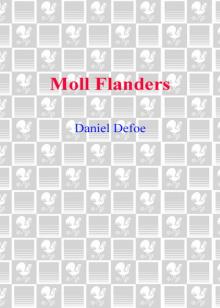 Moll Flanders Moll Flanders Moll Flanders
Moll Flanders Moll Flanders Moll Flanders The Further Adventures of Robinson Crusoe
The Further Adventures of Robinson Crusoe Everybody's Business Is Nobody's Business
Everybody's Business Is Nobody's Business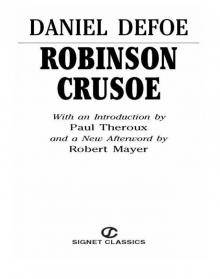 Robinson Crusoe
Robinson Crusoe The Storm
The Storm The King of Pirates
The King of Pirates History of the Plague in London
History of the Plague in London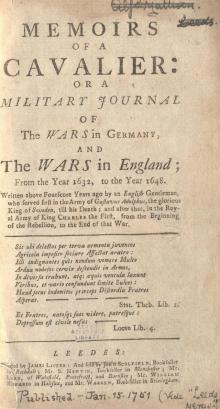 Memoirs of a Cavalier
Memoirs of a Cavalier_preview.jpg) The Life and Most Surprising Adventures of Robinson Crusoe, of York, Mariner (1801)
The Life and Most Surprising Adventures of Robinson Crusoe, of York, Mariner (1801)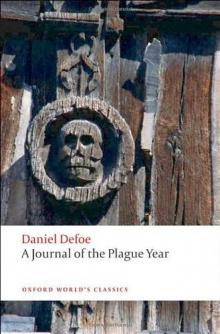 A Journal of the Plague Year
A Journal of the Plague Year_preview.jpg) The Life and Adventures of Robinson Crusoe (1808)
The Life and Adventures of Robinson Crusoe (1808)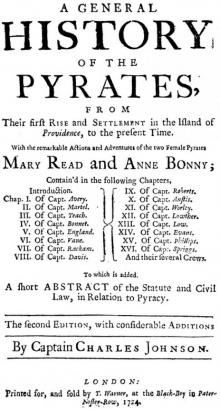 A General History of the Pyrates: / from their first rise and settlement in the island of Providence, to the present time
A General History of the Pyrates: / from their first rise and settlement in the island of Providence, to the present time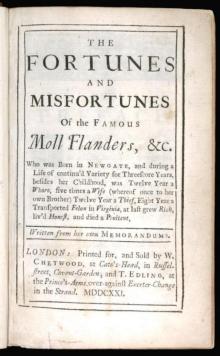 The Fortunes and Misfortunes of the Famous Moll Flanders
The Fortunes and Misfortunes of the Famous Moll Flanders_preview.jpg) The Fortunate Mistress (Parts 1 and 2)
The Fortunate Mistress (Parts 1 and 2)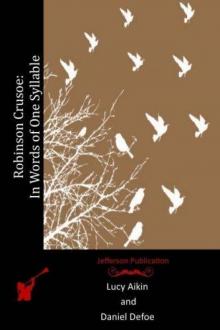 Robinson Crusoe — in Words of One Syllable
Robinson Crusoe — in Words of One Syllable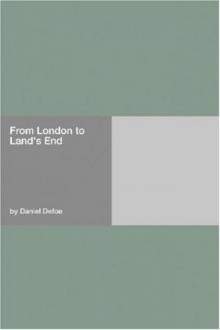 From London to Land's End
From London to Land's End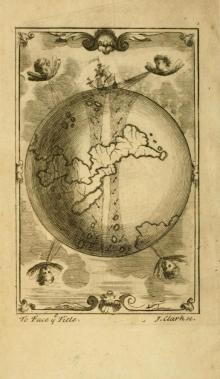 A New Voyage Round the World by a Course Never Sailed Before
A New Voyage Round the World by a Course Never Sailed Before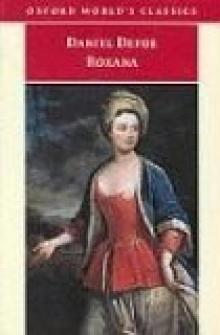 Roxana
Roxana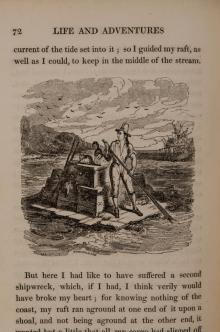 The Life and Adventures of Robinson Crusoe of York, Mariner, Volume 1
The Life and Adventures of Robinson Crusoe of York, Mariner, Volume 1_preview.jpg) Memoirs of Major Alexander Ramkins (1718)
Memoirs of Major Alexander Ramkins (1718) Dickory Cronke
Dickory Cronke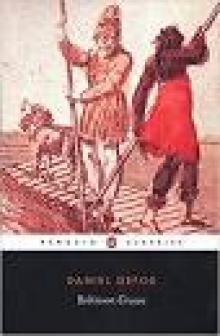 Robinson Crusoe (Penguin ed.)
Robinson Crusoe (Penguin ed.)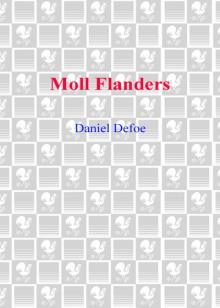 Moll Flanders
Moll Flanders The Further Adventures of Robinson Crusoe rc-2
The Further Adventures of Robinson Crusoe rc-2